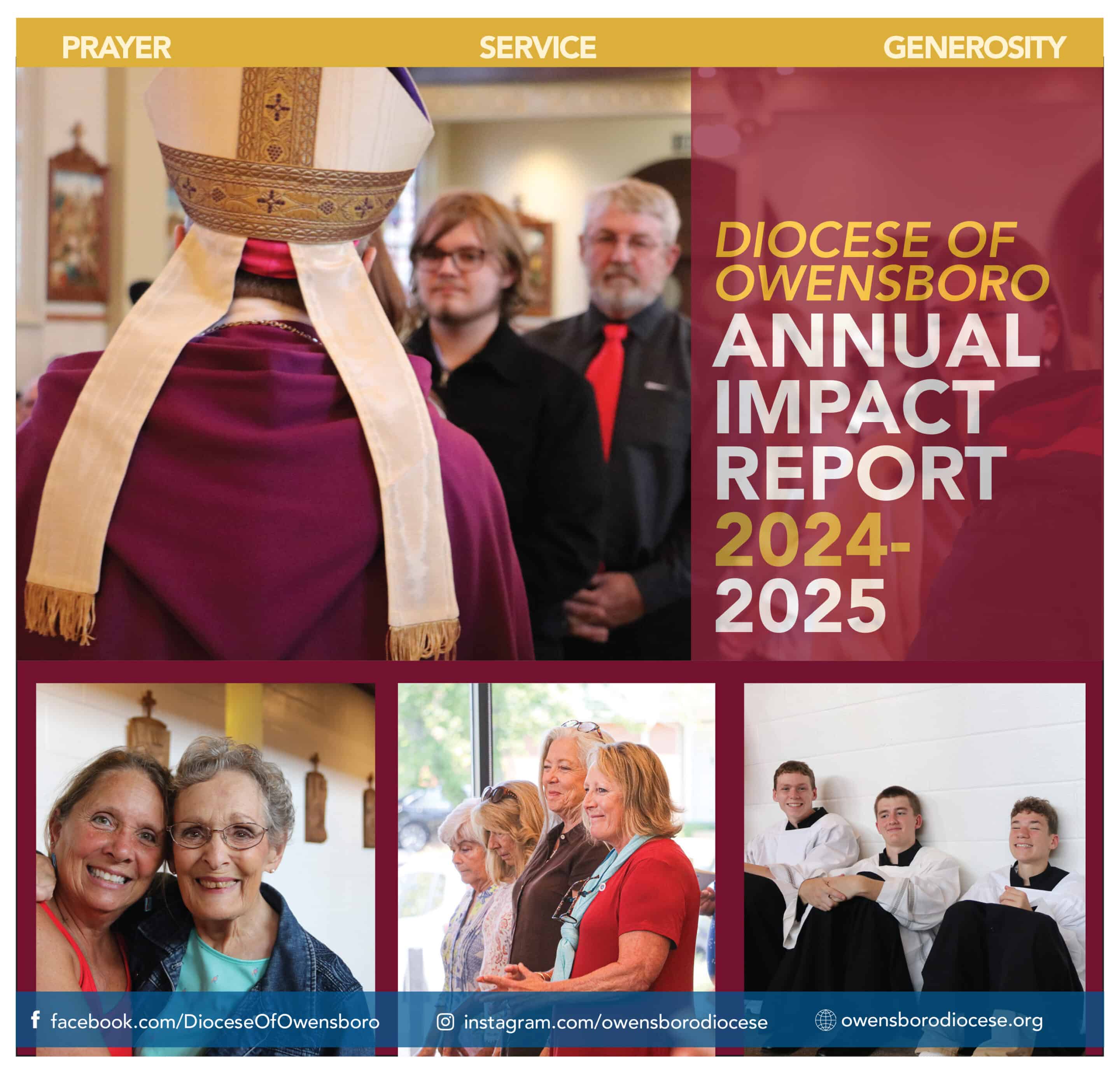
Rite of Christian Initiation of Adults candidates, team members and sponsors talk in groups Jan. 31, 2012, at Washington University’s Catholic Student Center in St. Louis. (CNS photo/Lisa Johnston, St. Louis Review)
Evangelize by sharing your faith story: A Lenten challenge
BY DR. JEFF ANDRINI, OFFICE OF EVANGELIZATION AND DISCIPLESHIP
The United States bishops have stated that, “Whether you were baptized as a child, or joined the Church as an adult, you have a story of faith. Whether you sincerely live your faith in quiet or have a great public ministry, you have a story of faith. Whether you have a grade school knowledge of the catechism or have a theological degree, you have a story of faith. We all have – and are – stories of faith! We can understand evangelization in light of these stories of faith; namely, how we have been changed by the power of Christ’s word and sacraments and how we have an essential role in sharing faith through our daily lives as believers” (USCCB, Go and Make Disciples, 1993).
Pope Paul VI, in his historic document, “Evangelization in the Modern World,” said, “Modern man listens more willingly to witnesses that teachers, and if he does listen to teachers, it is because they are witnesses.” Our personal witness is one of the greatest resources we have to share about God’s love and care for humanity. Why is this?
First, it enfleshes the Gospel. You can read the Bible about how God worked miracles and provided for people, but that was a long time ago. When you share from your own life about the miracles you have seen in your own family or ways that God has provided for you, unlike the Bible stories, these illustrate in the present how God can work.
Second, stories grab attention. I once had a pastor that occasionally said, “Let me share a story” in his homily. It seemed like the whole Church sat up straighter and listened. People enjoy real-life stories, and honest stories about our lives and how God has worked are a powerful way to witness to the truth of God’s love.
Third, stories communicate non-offensively. We could say to someone struggling with alcohol, “You know what the Bible says about drunkenness” or we could say, “when I had a drinking problem, I found grace from God to quit” and share some of the circumstances that lead to me being sober. Of course, do not make stuff up, we all have our little stories of how God has helped us through tough things.
Fourth, stories are difficult to dispute. If I am honest and share ways I have experienced God working, people will not respond, “That never happened.”
Finally, stories express concrete effects that lead to interest in applying it to one’s own life. Meaning, if God did that in your life, maybe God could do that in mine? As we go through Lent this year, take 15 minutes of quiet time each morning to sit with the Lord and write down the story of your life. Then like the early Christians after the Resurrection, share your story with the people that God puts in your life!
Peace,
Jeff
Dr. Jeff Andrini is the director of the Office of Evangelization and Discipleship. He wants to hear from you and maybe feature your questions in his column! Please email questions and comments to [email protected].
Originally printed in the March 2023 issue of The Western Kentucky Catholic.

